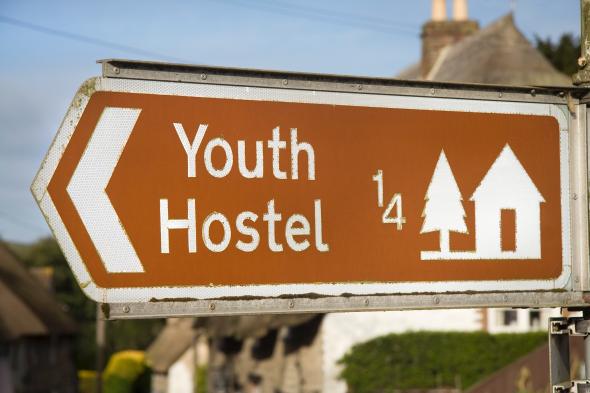Unless you really love bunk beds, the cons of staying in a hostel tend to outweigh the pros. Pro: They’re cheap! Con: The odds of your sheets being clean and your laptop not getting stolen are never quite as high as you might hope. With such a dismal reputation, it’s no surprise that some companies are looking to rebrand these accommodations traditionally reserved for students, backpackers, and the budget-conscious. Goodbye hostels, hello “poshtels.” Sadly, that’s not Victoria Beckham’s forthcoming hospitality empire; it’s the neologism for the chic-er, upgraded versions of hostels that are popping up all over the country, as the Washington Post reported Monday.
Poshtels are completely reinventing hostels, you see. One poshtel in Chicago, the Hollander, boasts interior design by a French firm (oui oui!) and eight “social-stay rooms” starting at $25 a night. What makes the experience social is, in addition to four to six bunks per room and the common areas that hostels have always boasted (with the requisite bookshelf full of abandoned Let’s Go travel guides, no doubt), you also get to share your Instagram handles with fellow guests. So you can keep tabs on your suitemates enjoying your stolen possessions in the months following your stay? The Post’s reporter did not seem to make any friends despite the social theme, observing that “at 5 o’clock on a Friday evening, two men and one woman sit strategically far from one another in the lobby, staring at their laptops.”
Hmm, that doesn’t seem very posh. Maybe hostels haven’t changed that much after all.
To be fair, some of the other poshtels that the Post spotlights, most of them in Europe, do sound genuinely intriguing.
Urban House , in Copenhagen, boasts a tattoo studio and bike shop, and hosts live music nights and movie nights throughout the week. At The Yellow Hostel in Rome, there’s an underground club, an on-site bar and Italian restaurant, bicycle rentals, a stage for live performances and a rooftop terrace; a salon and co-working space are planned. The wellnessHostel in the Swiss Alps resort village of Saas-Fee flexes its well-being muscle with a spa, indoor pool, fitness center and a restaurant serving regional fare.
Why bother trying to make over the dingy-but-perfectly-serviceable-for-what-they-are hostels of America? Because “[t]here’s significant room for U.S. growth in the $5.2 billion hostel industry,” of course:
The United States has long lagged behind much of the world when it comes to hostels, [Feargal Mooney, chief executive of Hostelworld Group] says. The United States and Canada are home to just 3 percent of hostel properties, accounting for 10 percent of global hostel revenue, according to the report. Compare that to hotels, where the United States draws 28 percent of global revenue.
The industry also sees an opportunity in millennials, who they hope to sway by lumping hostels in with buzzy concepts like the “sharing economy” and the “experience economy.” “They want to experience something unique so they can get back on Facebook and share it with their friends,” one professor of hotel administration told the Post. Hey, millennials have definitely fallen for dumber things. But if the industry continues to market the same old communal rooms as suddenly chic, fellow millennials, don’t take the bait. Airbnb at least offers a little more privacy. When an American poshtel gets an underground club, though, we’ll talk.
